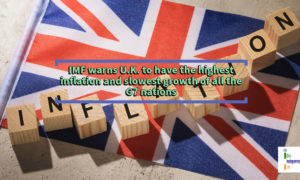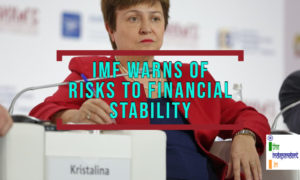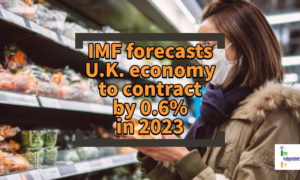
Pakistan’s economic crisis has left the common man with no choice but to come to the streets
Thousands of anti-Government protestors have come to streets of Islamabad, the capital city of Pakistan, demanding immediate resignation of the Prime Minister of Pakistan – Imran Khan, over the deepening economic crisis in the country.
The march christened, ‘Azadi March’ is being led by Fazal-Ur-Rehman, the President of the Political Party – Jamiat Ulema-e-Islam (F). Fazal has previously served as the Leader of the Opposition from 2004 to 2007. Fazal was a member of the National Assembly of Pakistan between 1988 and May 2018.
The Azadi March which started from Sukkur on October 27, 2019, has travelled through Sindh and Punjab to reach Islamabad on October 31, 2019. The country’s main Opposition Political Party – Pakistan Muslim League-Nawaz (PML-N) and Pakistan People’s Party (PPP) are supporting the JUI-F’s protest against Imran Khan’s party – Pakistan Tehreek-e-Insaf (PTI).
The protestors gathered at a large ground where they waived black-and-white striped party flags and shouted anti-Government slogans on loudspeakers mounted on pick-up trucks. A large number of police personnel have been deployed to ensure peace and stability in the city.

The rising prices of commodities are a big concern in Pakistan. The inflation in Pakistan is at 11.4% amid slowing growth. The International Monetary Fund (IMF) has predicted Pakistan’s economic growth to further slowdown to 2.4% next year, from its current forecast of 3.3% for 2019. When PTI came to power in 2018, the country was already in the middle of an economic crisis, with spiralling current account and fiscal deficits, dwindling foreign reserves and a depreciating currency.
In May 2019, the IMF announced a U.S. $ 6 billion bailout to Pakistan. The bailout is to be paid out over more than 3 years. The IMF programme seeks to make structural reforms that would see Pakistan privatise major state-owned assets, rationalise its utility tariffs and bring its currency closer to a free float. In the last year, Pakistan’s currency has depreciated by about 18%, resulting into the price rise for imports such as oil, industrial raw materials and many consumer products.
Besides, the Government has also increased the tax to increase revenues for bridging the fiscal deficit. The Central Bank has also raised interest rates by a cumulative 575 basis points in the last fiscal year.
Speaking on the occasion, Fazal said, “We have to finally get the resignation from them (the government). And we will fight for it.”
Mustafa, a 33 years old shopkeeper who travelled more than 250 kms. from the Northern town of Shangla said, “Khan has not delivered the things [he] promised on the campaign. Prices are now so expensive that we cannot afford anything.”

As a safety measure, the Pakistan National Database and Registration Authority has cancelled the citizenship of Hafiz Hamdullah, an Afghan Pakistani outspoken JUI-F leader, and has labelled him as a confirmed alien as he is not a citizen of Pakistan. The Government has also banned Ansar ul Islam, youth volunteer wing of the JUI-F, as a terrorist group active in Burkina Faso and in Mali. The JUI-F has challenged the decisions against Hamdullah and Ansar ul-Islam in court.
Fazal has also alleged that Imran Khan won the elections through election rigging and wants a fresh election in the country. It is to be noted that since PTI came to power, the chiefs of the PPP and PML – N parties have been jailed on corruption charges.
It is to be noted that in October 2019, Paris based Financial Action Task Force (FATF) has issued a stern warning to the terror promoting nation Pakistan, to swiftly comply with the complete 27 action points by February 2020 or face getting ‘blacklisted’.
Talking about Pakistan’s economy, it will only get worse. This retention in ‘Grey List’ means downgrading by the International Monetary Fund (IMF), the World Bank, the Asian Development Bank (ADB) and the European Union (E.U.). The downgrading will make it impossible for Pakistan to procure fresh funds to revive its economy.







